Help for Parents: Dealing with Suicide Concerns



Nebraska School Safety




Nebraska School Safety
Suicide impacts almost everyone directly or indirectly. Hearing about it from a trusted source, like a parent or caregiver, will assist your child with the right information and they can speak to others about it accurately
- Kristin Francis, MD Huntsman Mental Institute, UT
• Remain calm.
• Remember that talking about suicide does not put the idea in someone’s head. Directly asking about a desire to die is important to understand whether your child is struggling with thoughts of suicide.
• Talking about suicide helps take away the stigma and embarrassment.
• Open your conversation with the signs that are concerning to you.
• Consider asking, “Are you thinking about hurting yourself?” or “Are you wanting to die?”

• When a child shares that they are in crisis, try to react calmly and be accepting.
• Do not minimize their feelings or tell them they shouldn’t feel that way.
• Acknowledge that their feelings are valid and ask more questions. You can say, “Tell me more. What is it that you’re having a hard time with?” Really listen to what they are saying.
• Let them know that there are solutions to what they are grappling with. Ask them what they need and support them in getting that help.
• Be sure to ask, “Have you been thinking about how you might kill yourself?” This is important to help identify if they have plans for how they would end their life and what those plans are. When someone has a plan—whether full or partial—to attempt suicide, it signifies a more immediate crisis, and they should be taken to the ER immediately.
• If they are not comfortable sharing with you, ask if there is someone else whom they would rather talk to, like another relative, a teacher, or a school counselor.
•Has previously attempted suicide.
•Has a history of suicide by family or close friend.
•Has experienced a recent life changing or traumatic event.
•Was exposed to bullying.
•Has access to lethal means like firearms or medications.
•Struggles with a mental health disorder.
•Uses alcohol and other substances.
•Experienced legal trouble.

• Showing a sudden change in behavior.
• Isolating from friends and family.
• Experiencing eating or sleeping problems.
• Displaying agitation or mood swings.
• Showing reckless behavior.
• Dropping school performance.
• Using alcohol or drugs.
• Giving away belongings.
• Talking about feeling hopeless or trapped.
• Talking about suicide or wanting to die.
• Writing or drawing about suicide or acting it out in play.
• If there is not an imminent risk to the child’s life and they are safe with you, call or text 988 for the Suicide and Crisis Lifeline.
• If there is imminent risk to the child’s life, call 911 or take them to the emergency room for immediate concerns.
• Stay with your child at all times.
• Safeguard your home by eliminating lethal means (guns/weapons, medications, etc.)
• Minimize conflict.
• Offer empathy.
• Find a therapist that’s a good match.
• Participate in the therapy.
• Communicate with school support personnel.









What are signs my child may be struggling with mental health?
How can I recognize and support my child’s depression?
What are ways I can help prevent suicidal ideation?
What are warning signs for suicide?
What can I do to help support my child when suicidal?
How can I support my child after a suicide attempt?
What can I do to help keep my child safe at home?
Where can I turn for help in Nebraska?
What other national resources might be helpful for me?

Links are indicated by a to the left of the text.
What are the signs my child may be struggling with mental health?


Online Mental Health Screenings
Free and confidential screenings to help you decide if you should seek help for areas including depression, anxiety disorders, etc.


Mental Health and Teens: Watch for Danger Signs
Watch for abrupt and significant changes in behavior or personality. For example, someone who typically enjoys spending time with family or friends is now sullen and isolating. Drops in grades and attendance can also be signs, as well as excessive mood swings.


Answer a series of questions for a list of possible psychiatric or learning disorders that are associated with those symptoms.


Mental Illness in Children: Know the Signs


Children and Mental Health: Is This Just a Stage?


Quick Guide to Depression
Symptoms of depression and how it is diagnosed and treated.
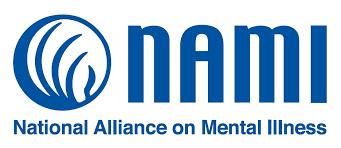

5 Things You Can Do to Help Your Child with Depression
Children and adolescents will have days that they may be moody or sad. This is part of the growing up experience. Concerns about possible depression surface when this moodiness or sadness is persistent, lasting for weeks or months. Parents need to have open communication with their children and provide extra positive support and encouragement when there are concerns about depression.
You can reach out to your child’s medical professional to evaluate the child’s overall health and offer a possible mental health referral. Your child’s school may also be able to help with a mental health referral. You can also use the free screeners from the previous section.


Childhood Depression: What Parents Need to Know
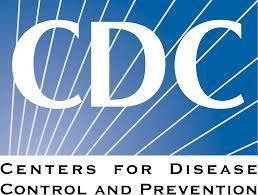

Anxiety and Depression in Children
“
There are a lot of things that happen in your life that you have no choice over. But the one thing that can never be taken away from you is your ability to choose how to respond.
- Terry Wise
Additional Resources
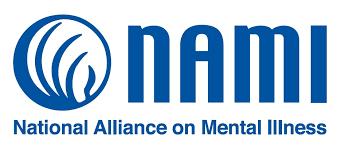

Keep communication open with an understanding that you are always there to listen and provide support. At the same time, be alert to possible changes or warning signs, and be prepared to ask questions. Keep a close eye on whom your child is spending time with and social media. Discuss suicide with your child as a way to reinforce that it is normal to have ups and downs as part of living life, but there is always a better option. Remember that talking about suicide does not put the idea in their head.
How to Ask Someone About Suicide


Talk to Your Child About Suicide: An Age-by-Age Guide for Parents


Youth Suicide Prevention Series - Important Questions to Ask


12 Things Parents Can Do to Prevent Suicide
Additional Resources


What are warning signs for suicide? Suicide Factsheet: Warning Signs & What to Do Signs a Child Might be Suicidal Teen Suicide: What Parents Need to Know Video - Teen Suicide
Be tuned in to sudden changes in behavior or mood which can include a sudden burst of positive energy. Watch for written or verbal statements about wanting to be “done” with life, as well as risky behavior or giving possessions away.





If you are concerned that your child is suicidal, do not leave them alone. Make sure there is no access to lethal means (weapons, drugs/medications, etc.).
Consider taking the car keys away as well. Don’t hesitate to call 988 for help, or call 911 if there is an immediate threat.
Recognizing that students spend a large percentage of their day in school, parents need to communicate any suicidal concerns with school personnel so they can be alert to warning signs and proactive in providing support. School mental health professionals (such as school counselors or social workers) and building administrators would be key personnel to partner with when there are concerns.


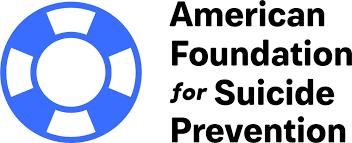

Teens and Suicide: What Parents Should Know

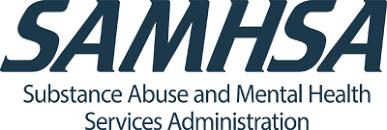



How to Help My Child At Risk of Suicide


What Happens When Your Child’s School Reports Suicidal Ideation
-Misty Vaughan Allen Suicide Prevention Coordinator, State of Nevada “
“When we recognize that someone is having [suicidal] thoughts and we reach out, we are instantly planting a seed of hope that they’re not invisible, that they’re not alone.”
Additional Resources

Support your child’s recovery with ongoing therapy, and be alert to warning signs. Keep a focus on ways to keep your child safe by removing lethal means from the home as noted in the next section. Work with your child’s school on a safety plan (examples below). Keep communication lines open with your child.
Your child’s school may have procedures and a safety plan (example below) to help parents partner with the school to increase safety. The following re-entry resources could be shared with the school to help them prepare to support your child when returning to school.

Safety Plan Example


Suicide Factsheet: Following an Attempt -What You Need to Know About a Family Member or Friend Who Has Been Suicidal


Staff Re-entry Tips Video Staff Re-entry Tips Handout
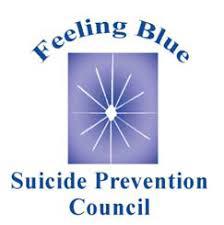

After an Attempt: The Emotional Impact of a Suicide Attempt on Families
What can I do to help keep my child safe at home?
Additional Resources


Safeguarding Your Home
Keep weapons, ammunition, medications, and poisons under lock. Closely monitor your child’s online and social media activity. Be alert to possible warning signs.
Contact your child’s school mental health professionals (social worker, school counselor, LMHP, etc.), your child’s physician, or local mental health or medical center for referrals and support.






Suicide Prevention for Youth, Schools, & Families
Tools for suicide prevention and supporting youth.


Provides statewide suicide prevention resources.


Provides resources to help parents understand and support self-harm concerns.

Find your region’s support resources that are working to promote resilience and recovery, or find a local provider.


Helpline workers assess immediate safety needs and make recommendations or referrals to appropriate resources.
?What other national resources might be helpful for me?

Child Mind Institute Guides
This website includes a set of guides for parents on a wide variety of mental health issues.

Center for Young Women’s Health and Young Men’s Health
These websites provide information targeted at parents of adolescents, including guides on how to support children suffering from depression and eating disorders.

Headspace
This website from Australia has a wealth of resources and videos for parents and caregivers of young adults aged 12-25 years who have mental health concerns.

HealthlyChildren.Org
Sponsored by the American Academy of Pediatrics, this website provides a wide range of resources for parents of teens and young adults.

Jaspr Health
Contains “family skills” content, including interviews with suicide prevention experts offering advice and steps to take when caring for a loved one.

Jason Foundation Parent Resource Program
This website includes a number of resources to help parents understand suicide risk, facts, and what they can do.

Jed Foundation
Promoting emotional health and preventing suicide among college students, this website provides resources, including Transition Year, that are designed to help parents recognize the signs of a mental health problems and help their child’s transition to college.

Kelty Mental Health Resource Center
Numerous resources for parents and caregivers can be found at this website, including a resource library and family toolkit.

National Institute of Mental Health
Working to transform the understanding and treatment of mental illnesses, NIMA’s website provides guides and brochures directed at parents.

Understanding
This website helps parents care for their child’s ups and downs, from dealing with divorce to preparing for new siblings. It also provides information on how to understand your child’s behavior, including teenage depression.

Teen Mental Health
Geared toward teenagers, this website provides learning tools on a variety of mental illnesses, videos, and resources for parents and caregivers.

Please visit the Nebraska School Suicide Prevention Guide for additional resources and information.
This resource was developed through a collaboration between the University of Nebraska Public Policy Center and the Nebraska Department of Education under the grant number 1H79SM082143 from the Substance Abuse and Mental Health Services Administration (SAMHSA), U.S. Department of Health and Human Services (HHS) via the Nebraska Department of Health and Human Services, Division of Behavioral Health. The views, policies, and opinions expressed are those of the authors and do not necessarily reflect those of SAMHSA or HHS. Rev. 6/22
Thank you to the following individuals for their efforts in creating this resource: Content: Sally Carlson, Kim Jacobson, & Quinn Lewandowski. Design: Taylor Hays & Stacie Kotschwar.